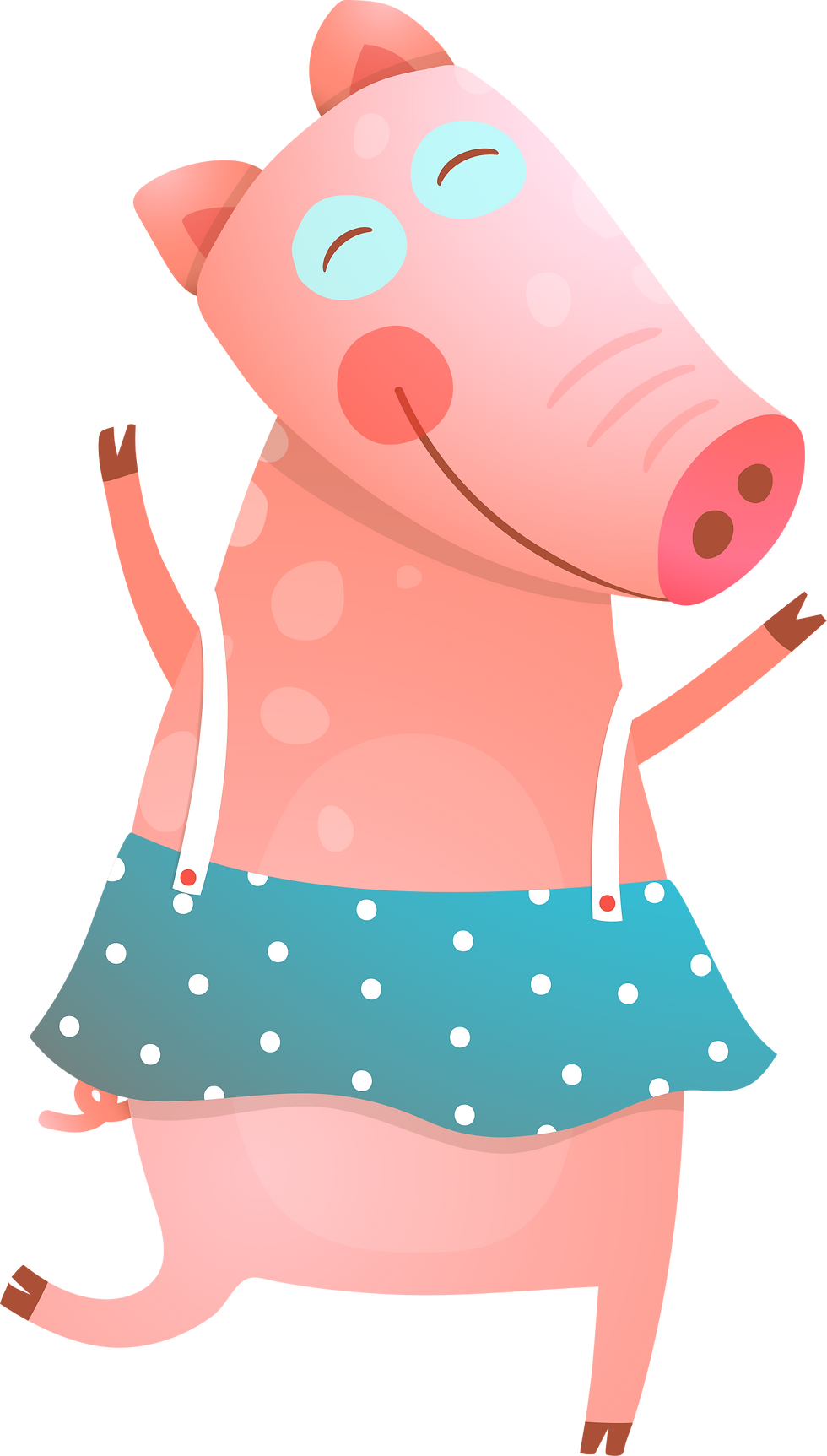Kosher Food - Explained
- Hebrew For Beginners

- Jan 29, 2018
- 3 min read
Updated: Jan 4, 2021
The average person might ask: Kosher food has something to do with not eating swine? Or is it something that jewish people do that includes a rabbi? Let us clarify that for you :)

What Does Kosher Mean? The word “Kosher” means something that is done the proper way, or pure. Kashrut ( כָּשְׁרוּת ) in judaism, is a set of rules concerning food, that dictates what is allowed and what is forbidden to eat, according to the Jewish law ( halacha - הָלַכַה).

We decided to simplify these rules, and make your life easier: 1. Kosher Animals. (hayot ksherot - חָיוֹת כְּשֵׁרוֹת)
Livestock with a split hoof (מָפְרִיס פָּרְסַה mafris parsa ) that also chew the cud (מָעַלֵה גֵירַה maale gera) are considered Kosher. If an animal fulfils only one of these conditions, it is not a Kosher animal. The pig has a split hoof, however, it does not chew its cud, therefore it is not a Kosher animal. Some of the land animals that Considered Kosher , are: Cows, bulls, Sheep, Goats, and Gazelles.
Seafood: Fish with scales and fins are allowed to be eaten for example - tuna and salmon. Shellfish ( such as shrimps) , crabs and lobsters are forbidden.
Fowl: there is no specific criteria for Koster fowls, so the rule dictates that any bird with no continuous tradition of eating, is forbidden to eat. Also birds of prey are forbidden. Some of the birds that considered kosher, are - goose, duck, chicken, and turkey.
2. Kosher Slaughter (schita kshera - שׁחִיטָה כְּשֵׁרַה)
The Kosher animal is being slaughtered by a butcher (Schochet - שׁוֹחֵט) which is one the traditional professions in the Jewish community. The law says that you must not cause any pain to the animal, during the slaughter. The death must be instant and as not painful as possible.
3. Dairy Products (mutzrei chalav - מוּצרֵי חָלַב)
all kosher dairy products must be produced from kosher animals only.
4. Separation of meat and dairy
In the Torah it is forbidden (asur - אָסוּר) to cook a baby goat in its own mother’s milk. The meaning, as interpreted, is that milk and meat products must not be eaten together, mixed together, or even be cooked in the same dishes. Common today is to wait 3-6 hours, after eating meat before eating dairy products.
After eating dairy products, some don't wait at all, some wait for 1 hour.
There are many different customs (minhagim - מִנהָגִים) regarding this rule.

5. Fruits & vegetables (perot ve yerakot - פֵּירוֹת וְירָקוֹת)
Fruits & vegetables are almost always considered kosher, as long as it's clean of insects.
6. Parve (פָּרְווֵה)
Food that is neither meat or dairy, and can be eaten with everything, for example honey, eggs, fish (not considered meat) and fruits. It would be almost impossible to go over all the rules. We have given you the more familiar ones, and the most important ones

Bonus facts: * Milk (chalav - חָלַב) and eggs (beitzim - בֵּיצִים) are allowed to be consumed only if the animal is kosher * Honey (dvash - דְבָש) is an exception - even though the bees are not a kosher animal, honey is allowed. * Eggs of kosher birds are Kosher as long as they do not contain blood (dam - דָם) * Insects (charakim - חָרַקִים) are not kosher. Animals with many legs or very short legs are forbidden. Though there is one exception, the Locust (Arbe - אָרְבֵּה), is a Kosher insect, but is not commonly being eaten and not being sold as food in Israel, personally, none of us tried it or seen other Israelis eating it (only in reality shows).
* During Passover , there is another strict observance of eating kosher food for Passover, Rules for Kosher wines and beverage, and much more.
Here is an awesome YouTube video by getKosher.com to sum up this blog post:
Have questions?
Comment on this blog post and we will do our best to answer :)









Comments